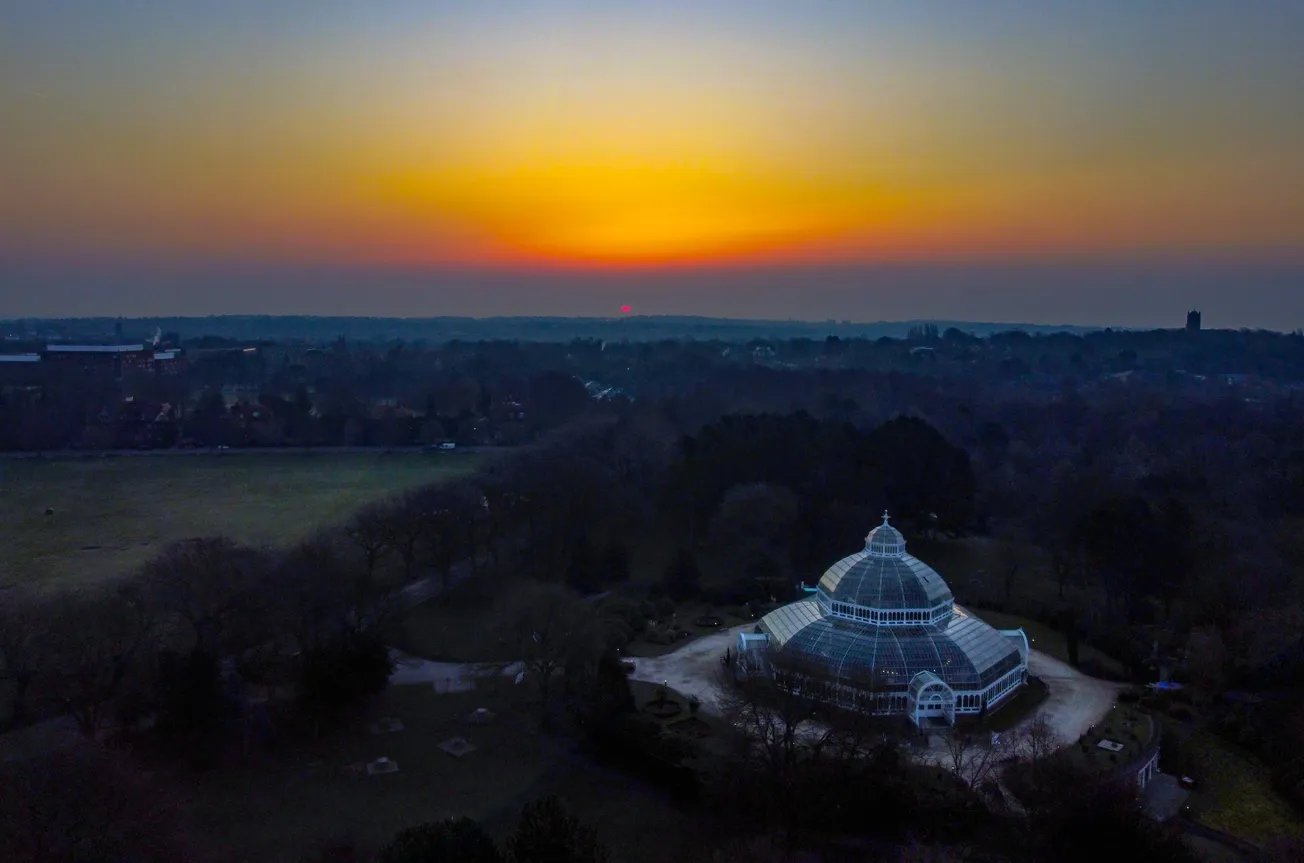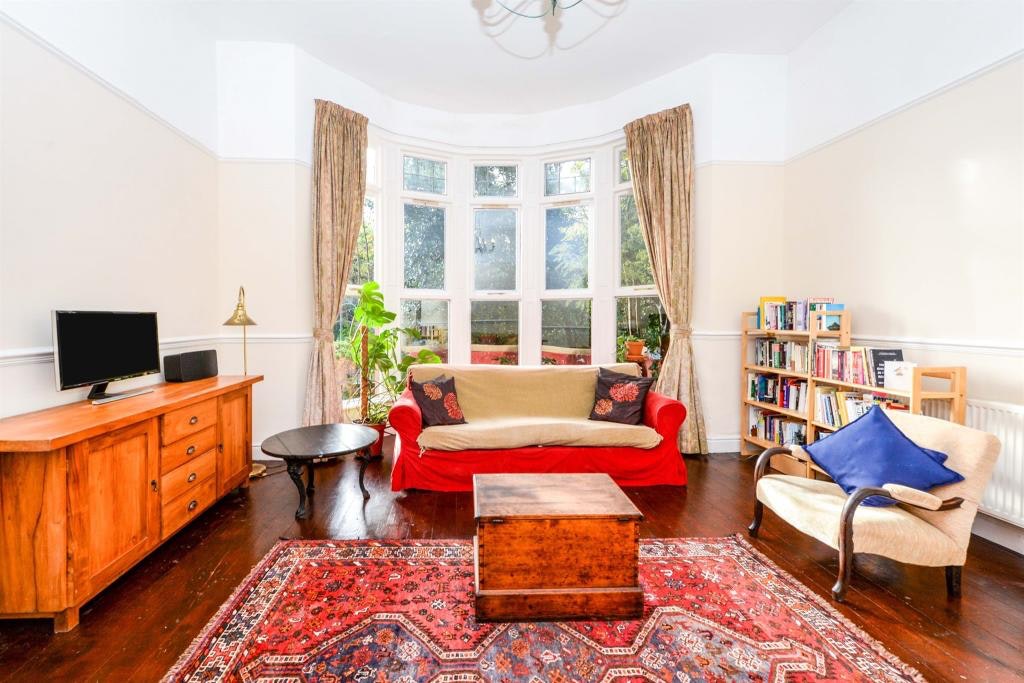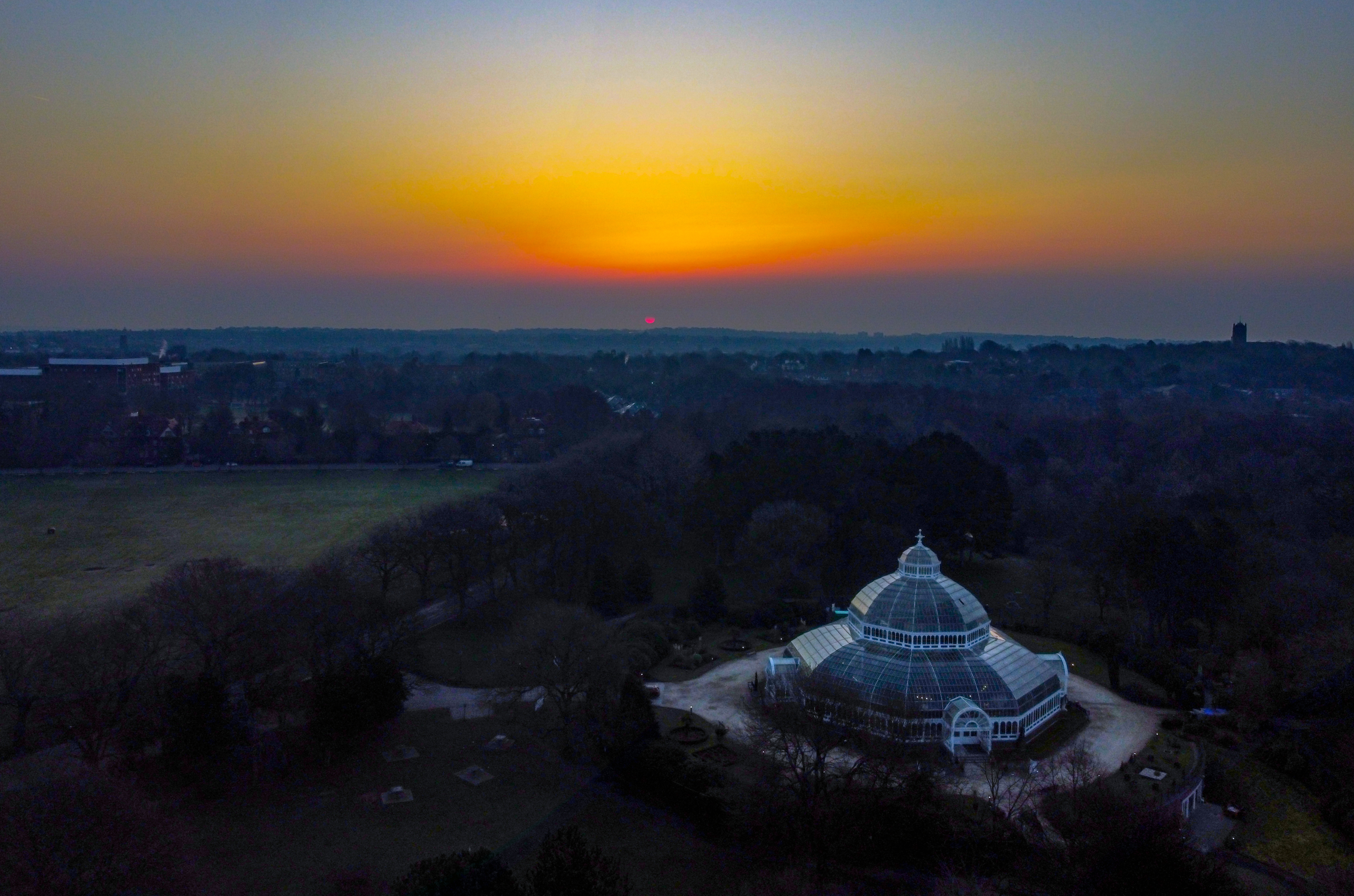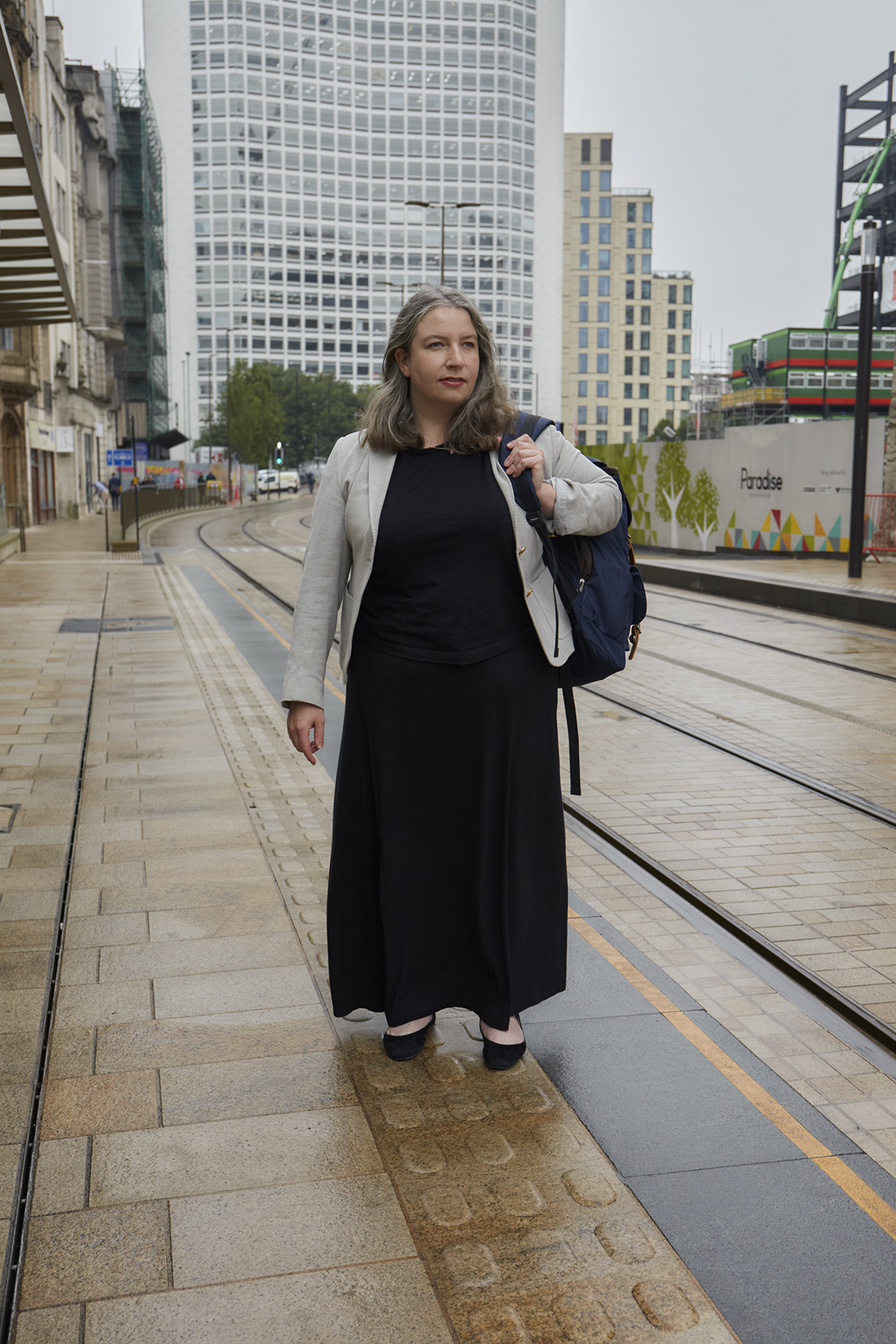How a blunder at Liverpool City Council cost taxpayers £5 million

Plus, a review of a Philharmonic performance 'banal enough to have tumbled out of a Hallmark greeting card'
Dear readers — today, we’re looking at Liverpool City Council and a litany of errors that will cost taxpayers £5 million to pay for the council’s electricity bill. In our recommended reads, we have a great review of the latest exhibition at the Tate and another look at Lucy Easthope’s book about disaster planning.
In case you missed it, our weekend read was about the challenge to Labour on the Wirral and in St Helens. You can read that piece here, and if you have a friend or family member who might enjoy our political reporting, please feel free to forward them this edition to spread the word.
⛅️ This week’s weather

The big story: How did Liverpool City Council cost taxpayers £5 million?
Top line: A series of bureaucratic errors has resulted in Liverpool City Council losing out on a cheaper electricity bill, a mistake which will cost taxpayers £5 million. The error emerged in a council report released on Friday.
What went wrong? The council had a fixed-price electricity contract with Scottish Power which ran from June 2018 until May 2022. Ahead of the deadline and facing a volatile energy market, council officers agreed an extension. But the draft report sent to cabinet for approval contained one major error: that it was a report designed for the renewal of a gas and electricity contract, not just the electricity.
- The report was withdrawn, and when it came to the time to resubmit that report, Scottish Power had closed its trade desk, and no new contract could be agreed.
- Under the new contract, the total cost based on general market prices will increase from £10.6m to £26m.
The response: The commissioners have launched a formal investigation and the council’s chief executive Tony Reeves has had to formally apologise. Mayor Joanne Anderson said: “It’s a kick in the teeth, when our council is struggling to keep frontline services running due to continued Tory austerity, that this has happened.”
Richard Kemp, the local Lib Dem leader, wrote in his blog: “As usual we were fobbed off by an arrogant council that always thinks it knows best.” It has been referred to Kris Brown, who chairs Liverpool’s audit committee, for investigation.
It gets worse: The council contract for electricity also supplies Liverpool’s schools and fire service. The total cost of the error will be around £16 million when you factor in the bills for schools.
‘Chaos’: Former Granada journalist Matt O’Donoghue, who has reported extensively on the council, told The Post: “It’s symbolic of the absolute chaos that seems to reign absolutely top to bottom in Liverpool City Council. They’ve just spaffed £16 million up the wall because someone couldn’t get it together to pick up the phone and to say, yeah, you know what, we will stay on our fixed contract.”
Local news in brief
- One of the first Ukrainian families on Merseyside is settling in. Mila, Nazar and Tonya fled Kyiv and arrived at Liverpool Airport on 23 April. Since then, they have been living with Nicole Ross, who lives in Prenton with her three children, who are similar ages to Mila’s children. Nicole says: “There’s going to be days where it’s a bit awkward and crowded and stressful but I’m just glad that I can help and it feels like the right thing to do. I couldn’t not do it.” More here.
- Mayor Joanne Anderson and Manchester City Council leader Bev Craig go head-to-head in the Sunday Times, arguing which city is better. They compare the relative merits of nightlife, cultural impact, fine dining and art galleries of the two cities. Anderson writes: “People who slag off Liverpool probably haven’t been since the 1980s or they haven’t been at all.” More here.
- Melanie Lewis, the chief executive of the new £38 million Shakespeare North theatre opening in Prescot in July, has promised Knowsley’s 19,000 schoolchildren will be the first through the door to learn about acting, writing, directing or stage management in bespoke workshops. Max Steinberg, the theatre’s chairman, added the theatre is “Prescot’s biggest chance at regeneration in 500 years” and said it is the most challenging project he has ever worked on. More here, and go deeper with our feature about how Shakespeare North might impact life in Prescot.
- The latest display at the Walker Art Gallery comes from the collection at Liverpool Slavery Museum and was organised by a steering group of young people from Liverpool. It’s a sobering set of wrought-iron ankle shackles, which were used to restrain slaves as they were transported from Africa. You can find it next to the sculptures, and the aim is that the display will confront the connections between slavery and art in Liverpool’s galleries. More here.
- Liverpool FC’s equality chief blames lockdown for seeing a rise in discriminatory and offensive behaviour amongst football fans, saying: “I think people have forgotten how to behave.” He was talking at a panel discussion at Liverpool Against Racism Festival, Joanne Anderson’s response to the Black Lives Matter movement. Also speaking at the panel was Neil Danns, a Liverpool academy coach who says there is still a frustrating lack of opportunity for black managers. “The saddest part about it is, although I’ve played over 600 games, played for over 23 years, my first thought about coaching was I might be a first-team coach, not that I might be a manager.” More here.
- Jodie Comer won the award for leading actress at the BAFTAs last night for her role as a care worker in Help, a TV drama about the lives and deaths of people in care homes during the pandemic, which was set in Liverpool and featured some of the city’s most famous stars, including Cathy Tyson and Ian Hart. The show suggests the government abandoned vulnerable people in care homes without coronavirus testing. More here.
Home of the week

There’s a two-bedroom Victorian apartment on the edge of Lark Lane on the market for £180,000. It has beautiful floorboards, period features and communal gardens.
Post Picks
🎻 London Concertante is performing Vivaldi’s Four Seasons at St George’s Hall on Sunday afternoon. Tickets start at £24.
🇨🇳 We recommend 10 Thousand Heartbeats: A Local’s Guide to Liverpool Chinatown. It’s a history tour of Chinatown using the form of a storytelling podcast, which you will need a smartphone and a pair of headphones to experience. It’s written by local playwrights and aims to take you through the footsteps of Chinatown’s residents, past and present. More here.
🖼 We enjoyed the latest exhibition at Open Eye Gallery, which brings together photography projects from African artists. Dillon Marsh explores the climate crisis exemplified by the melting glaciers on the Rwenzori Mountains, located on the border of Uganda and the Democratic Republic of the Congo, and Etinosa Yvonne subverts the traditional association of women and girls sourcing clean water for their families. More here.
🎤 Claud, an up-and-coming American pop singer, is performing in Liverpool Central Library on Sunday afternoon. It’s organised by Get it Loud in Libraries, who are trying to liven up England’s neglected libraries with gigs. Book here.
🎙 A great podcast on Tortoise exploring the claims that Liverpool FC, which has already generated millions of pounds in revenue from selling collectible NFTs, may use a cryptocurrency exchange as next year’s shirt sponsor. For the uninitiated: there’s a great explainer about what cryptocurrency and NFTs mean. Listen to Part One here, and Part Two here.
🪡 An artisan market is coming to West Kirby on Saturday. Everything is handcrafted: there will be trinket dishes made from seashells, watercolour-painted birthday cards, jewellery and sweet treats. More here.
🗣 South Liverpool Debating Society is meeting this Thursday evening in Keith’s Food and Wine Bar. This week, they’re discussing whether men and women have been set against each other. More here.
🌳 You can try “forest bathing” in Runcorn Hill Park on Sunday. There’s no actual bathing: the term refers to the practice of immersing yourself in woodlands using mindfulness. The walk finishes with tea and biscuits. More here.
Photo of the week

An editor’s note: In our last Monday briefing, we wrote that in the photo of Lark Lane laundrette in the 1980s, the Oates family were “wearing clothes borrowed from the washer and dryer”. This anecdote was related to us in an interview and we have since found out it is untrue. Apologies for the error.
Our favourite reads
We liked this review of Mahler’s Fifth Symphony, conducted by Vasily Petrenko and performed at Liverpool Philharmonic Hall in The Times. The performance began with Mahler’s Letters, composed by the 27-year-old rising star Grace-Evangeline Mason, a reflective piece that occasionally had moments “banal enough to have tumbled out of a Hallmark greeting card.” Despite this, the performance delivered something moving: it was awarded four stars, and left the critic with the memory of the “softly luminous strings singing Mahler’s wordless songs of love”.
The TLS wrote a critique of Lucy Easthope’s book When The Dust Settles, who we also interviewed last month. It applauds her professionalism amongst a “substantial dose of the horrific and the horrible” and examines how haunting the work of post-disaster recovery and disaster planning can be: the motifs Lucy remembers from each disaster remaining as vivid as the first time she saw them, like the crumpled-up receipts in the pocket of a man who died in 9/11, or her own pregnancy tests confirming a positive before she suffered a series of miscarriages. Read our piece about Lucy here.

The new landscape art exhibition at Tate Liverpool deepens our connection with rural Britain, writes arts editor Lucy Davies for the Telegraph. Pivoting away from how landscape art is often used to fire conversations about climate crisis and rural workers, it balances these political themes with more mystical elements of the countryside, such as Victorian botany and folk stories. “Wherever you look, another curio hits you. It’s so worming with motifs and stories, that you could return to it your entire life and keep finding something new.”
There’s an old feature in the sports and pop culture magazine Grantland tracing the history of Aintree Racecourse back to 1836, when Liverpool was miles of dirty docks and the theory went that the city could be bound together by a new economic model: horses. The second part of the feature is less inspiring: it examines the recent spike in horse fatalities and how the stakes have only gotten higher for racegoers. “Auroras Encore was 11 years old. His leg could break at any moment. People were barely clapping, because no one had bet on this animal. No one knew how to feel. The National had defied us. No one was hurt. No one saw this coming.”
Letters from readers
Interesting article, detailed enough to give us the background, without going so deep as to risk losing readers' attention, for my own part, as a Liverpool resident, I wonder if this is, as you say the start of some kind of new revolution, or, are we just witnessing a veiled thereat to the Labour Party, ‘Still growing: a remarkable Green surge on the Wirral’ Baz
I’m looking forward to reading more of your thoughtful journalism, exactly what Liverpool needs and deserves, Adrian

Comments
Latest
Ghosts, gangsters and giving Liscard a chance
Trust in vaccines has fallen post-COVID. Now Knowsley has a measles outbreak
A Liverpool developer became a Dubai crypto kingpin. Now he’s accused of defrauding investors out of $400 million
Is Liverpool on track for net zero by 2030?
How a blunder at Liverpool City Council cost taxpayers £5 million
Plus, a review of a Philharmonic performance 'banal enough to have tumbled out of a Hallmark greeting card'